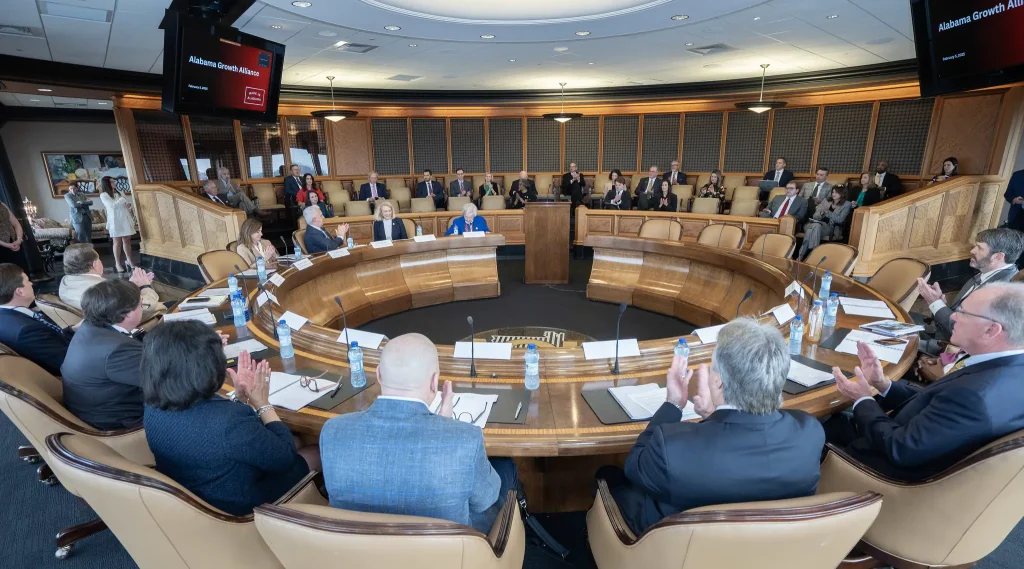The United Auto Workers recently won a workforce unionization vote at a Volkswagen manufacturing facility in Chattanooga, Tennessee. Now the union has set its sights on organizing workers at a Mercedes-Benz plant in Alabama as part of a multimillion-dollar campaign to try to unionize 150,000 workers at more than a dozen nonunion auto manufacturing plants in the South.
Mercedes and the UAW agreed to conduct a unionization vote in mid-May at facilities in Vance and Woodstock. Workers will begin voting via secret ballot on May 13, and the National Labor Relations Board will count the votes and announce the results on May 17.
Of course, while UAW organizers are aggressively trying to persuade Mercedes plant workers to vote yes for the UAW, workers are also considering the many good reasons not to vote for the UAW.
Alabama has a long history of rejecting unionization in the workplace, including two failed union organizing campaigns of Mercedes plants in the last 24 years.
In 2023, just 4.6% of all Alabama private sector workers were members of a union, which is not uncommon in states with strong right-to-work laws. As background, the 1947 Taft Hartley Act allows state governments to determine whether workers can be compelled to join a union or pay union dues or fees as a condition of employment. Such right-to-work laws ensure that workers who choose not to join a union are free to seek employment wherever they choose without being forced into a union. In 2016, Alabama voters passed a ballot measure—with almost 70% support—enshrining the right-to- work law into the state’s constitution.
Some Mercedes workers have rightfully expressed skepticism about the UAW’s unionization campaign. They see how inflexible union contracts contributed to the past financial problems of the big three automakers and significant job losses in Detroit, downstream damage to the local economy following plant closures and off-shoring of domestic manufacturing facilities. They worry a union victory will force plant closures during future economic downturns and turn off the spigot of billions of dollars of corporate investments in other manufacturing and development projects across Alabama and the South.
Likewise, workers are suspicious of the UAW’s grand promises to deliver increased pay and benefits in the face of future uncertain economic realities and market demand for both EV and combustion-engine vehicles.
Without a union contract, Mercedes and its workforce have the flexibility to respond rapidly to market demand and deliver win-win solutions that keep facilities open and profitable and workers happy and employed. For example, Mercedes workers point to recent raises, bonuses, profit sharing, and other benefits given by Mercedes to its workforce to attract and retain skilled labor as manufacturers compete for talent in markets with low unemployment.
Mercedes workers are worried they won’t be able to receive additional compensation reflecting merit-based performance and worker-friendly market realities while locked into multiyear union contracts.
Likewise, some younger Mercedes workers are concerned that the UAW’s pension plans may not be as strong as advertised and underfunded or insolvent in the future, as evidenced by other struggling UAW local pension plans. In 2021, the Biden administration had to bail out hundreds of troubled union multiemployer pension plans with almost $100 billion of taxpayer money.
There are no guarantees a future Congress and administration will provide unions with such favorable treatment. As Isabel Blank of the Americans for Fair Treatment pointed out in a recent National Review article, “How can unions credibly negotiate on behalf of workers when they struggle to meet their own financial obligations to employees?”
Workers are right to have many concerns and questions about the upcoming UAW vote. They need to carefully weigh the benefits and risks of unionization. Personal freedoms, careers, and the greater Alabama economy are on the line.
Tim Harrison is the founder and president of Harrison Construction.













